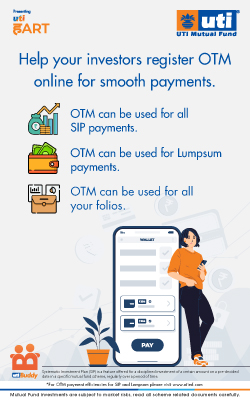Trust. Ultimately, it is the most important thing in a relationship between a financial advisor and a client. It is a necessary component for the advisor – client relationship to work. In my work conducting client advisory boards, it comes up all the time in response to the question “what do you most value about what your advisor does for you?” Most advisors offer it as one of the prime reasons a client should choose them.
And here’s the problem: you cannot deliver it.
Trust is not something that can be packaged and shipped. It cannot be documented in a report. It cannot be measured. It cannot be communicated through PowerPoint or statistics. An advisor is powerless to give it to anyone. Quite the opposite – the client must give it to the advisor.
And for this reason, claiming trust is utterly useless as a marketing tool.
It must grow and develop organically in the heart and mind of the client. It is a byproduct of behaviors.
An advisor can nurture a relationship and provide the environment for trust to blossom like a farmer tends his field. The farmer cannot “produce” crops. The seeds and plants are not under his control. He can alter the composition of the soil, provide the right amount of supplementation to the natural rainfall, can take care that he sprays the field with fertilizer and not Clorox. And if all the right activities are performed on the right schedule in the right amount the farmer will be able to harvest a crop.
Another reason trust will not help you gain clients is that all advisors claim it. And virtually all clients give it to their advisor. Both sides have to. Without trust, a working relationship between advisor and client cannot exist. In fact, working too hard to prove trustworthiness can backfire. Michael Kitces wrote an interesting piece on how over-stressing the fiduciary standard, essentially attempting to claim trust by proxy (and bad mouthing the competition in the process) can actually erode trust.
Yet the idea of trust is still critically important. Since we cannot deliver trust, the next best thing is to show prospects (and clients) and do things that communicate your trustworthiness to them. Simply promising it won’t work. But there are things you can do that can serve as a way of demonstrating that they can trust you.
Show people what they can expect – I am a big fan of having a “process graphic” as part of a new client presentation. It is an illustration of the steps you take clients through and the events that will happen at the beginning of a relationship. ActiFi talks about illustrating the first year in the life of a client. Ideally, this map would include some specific references to what makes your service unique. Letting people know what to expect (and then delivering on it) can help give people confidence that they will be treated well and will help build trust.
Talk to people not down to people – You know a lot more about planning and managing finances than your client does. However, some advisors and up slipping into a mode of speech that makes them sound arrogant or condescending. I had a conversation yesterday with a reporter from US News who has covered the financial beat for over 30 years. One of her greatest frustrations, she said, was talking with advisors who felt they needed to “educate” her. If that is something you tell people you do, you may want to reconsider. I don’t go to my doctor or my lawyer to be educated – I go to them for advice. Feeling talked down to is likely one of the significant reasons why 70% of widows find an advisor other than the one that worked with her late husband.
Listen – Being in the advice business, it can be easy to focus more on telling than hearing. That is a mistake, and erodes trust. Speaking at the HighTower Apex conference in Chicago last month, best-selling author Daniel Pink said “You can’t force someone to be your client… You need to see (issues) from their point of view. You want to understand someone’s interest, what’s in it for them. Focus on listening and responding, and you build the attunement muscles. Many people do not listen well because it is not something widely taught. Develop the skill and you will be better connected to people.
Keep your word – If you say you are sending something in the mail, get it out immediately. If you promise to call someone back, especially if it is within a specific timeframe, make sure you call. One of the primary reasons clients leave an advisor is because of poor service. If you are not fulfilling your promises at the outset, you are communicating that people cannot count on you. The corollary to this is don’t overpromise. One of my clients had a habit of being overly optimistic at how fast he could deliver on promises. He regularly made his office staff crazy with the mad scramble to get things done on time. Calling the client to ask if he could have an additional day or two was not unusual. I recommended that he simply add 50% onto the amount of time he thought it would take to do anything. If you can deliver ahead of schedule, so much the better. If something pops up, you have a little extra time to fulfill your promise.
Be consistent – Have processes so that activities happen the same way on the same basic schedule predictably. Do you send agendas in advance of meetings? Then ideally they would follow the same format and show up the same length of time before each appointment. Return phone calls within a work day of receiving the message. Getting a call back a couple hours after one message and a week after another is unsettling. Even if the call back is to let the client know you are still waiting for information, the predictability of hearing from you or someone on your staff reinforces trust. Have values and standards and stick to them, especially when the next bear market comes. Similar circumstances should lead to similar recommendations. President Reagan was trusted even by many people who disagreed with him because he was clear about his values and consistent in his decision-making.
Ask for feedback – In addition to learning interesting things about what your clients value most, asking for feedback communicates to clients your commitment to them. It is a way of elevating them in the relationship. When you express a genuine interest in providing them what they want out of the relationship the way that they want it, clients are reinforced in feeling that you have their best interests at heart. Clients are vulnerable; after all, you probably have discretion over a lot of their life savings. Being vulnerable in return deepens the relationship.
Apologize – We all make mistakes and have misunderstandings. When you discover one, or when a client points one out to you, take responsibility for it. Express remorse. Let them know you feel bad when you let them down.
While you cannot produce or deliver trust, you can nurture its development.
What else have you found that has helped you build trust with clients or prospects? I would love to hear some of what has worked for you in the comments section.
The article was first published on www.theclientdrivenpractice.com




